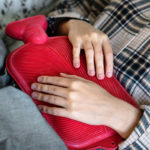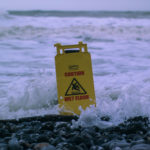Blog – Page 48
Oct 12, 2018 by

When an auto parts manufacturer makes a mistake at any phase of the design, development, or distribution process, it can put everyone on the road at risk. If you were injured in a crash that was caused by a defective part, you might be entitled to compensation for the resulting damages; however, going up against a major corporation poses certain challenges. These companies and their insurance carriers have the resources ... [Read More]
Oct 10, 2018 by

When you go to a restaurant, you expect the food you are served to be safe. However, this does not always happen. The United States District Court of the Middle District of Florida heard a case related to food poisoning. If you get sick or injured at a restaurant, an experienced South Florida personal injury attorney can help you to hold the responsible parties accountable. Standards of Negligence In order ... [Read More]
Oct 5, 2018 by

It goes without saying that seat belts reduce the risk of injury and death in the event of an accident. That’s why 49 states—all but New Hampshire—have implemented laws that require operators and passengers to wear seat belts when riding in a moving vehicle. Fortunately, if you were unrestrained at the time of your collision, you may still be entitled to compensation for medical bills and other damages. That said, ... [Read More]
Oct 5, 2018 by

On July 1, 2016, there was a shooting at a nightclub in Palmetto, Florida. Three patrons of the nightclub were shot, and others were trampled in the ensuing chaos. Now, several of those injured in the incident have sued the nightclub for damages. Even though the nightclub owners were not the ones who did the shooting, the plaintiffs in this case allege that the owners were negligent in several important ... [Read More]
Sep 27, 2018 by

When you buy an insurance policy, you expect it to cover you in the event of an accident. However, you may want to exercise caution to ensure that it actually covers you, as this case warns. If you are injured in a car or truck accident, before you contact your insurer you should consult an experienced South Florida truck accident attorney to help protect you. Insurance companies will sometimes urge ... [Read More]
Sep 21, 2018 by

In order for a court to hear a case, they must have jurisdiction over that case. Sometimes there may be multiple courts that could potentially hear a given case. One situation that comes up is that a plaintiff will bring a case in a court that is inconvenient for the defendant. When that happens a defendant may ask for the case to be moved to a more convenient court by ... [Read More]
Sep 12, 2018 by

Most personal injury lawyers work on a contingency fee basis, which means their payment comes out of the final settlement or verdict. In other words, they don’t get paid until the case has been resolved, and if their client doesn’t win, they don’t collect any attorney’s fees. While this arrangement typically benefits both parties, there’s at least one scenario in which it poses a major issue; clients who are unhappy ... [Read More]
Sep 11, 2018 by

In the U.S., we have both federal and state courts. If you are involved in a car or motorcycle accident, a knowledgeable South Florida personal injury attorney can help you to determine which court would be proper to file your suit in. Sometimes the suit may start in one court and then be moved – referred to as “removed”- to the other. Motorcycle Accident The underlying facts of this case ... [Read More]
Sep 8, 2018 by

If you were hurt in a car accident through no fault of your own, you have the right to file a third-party claim with the at-fault motorist’s insurer. If he or she fled the scene, though, you may be wondering how to pursue compensation for the healthcare bills, lost income, and other damages you incur. Since building a strong personal injury claim following a hit and run poses certain challenges, it’s natural ... [Read More]
Sep 7, 2018 by

If you are injured in a car accident, you may envision that the only person that you need to take legal action against is the driver who caused the accident. However, oftentimes insurance companies will also need to be brought into court in order for them to pay the damages that they owe. Even if your insurance company seems cooperative, they may just be trying to get you to settle ... [Read More]

 Call Us Today
- It's Free
Call Us Today
- It's Free